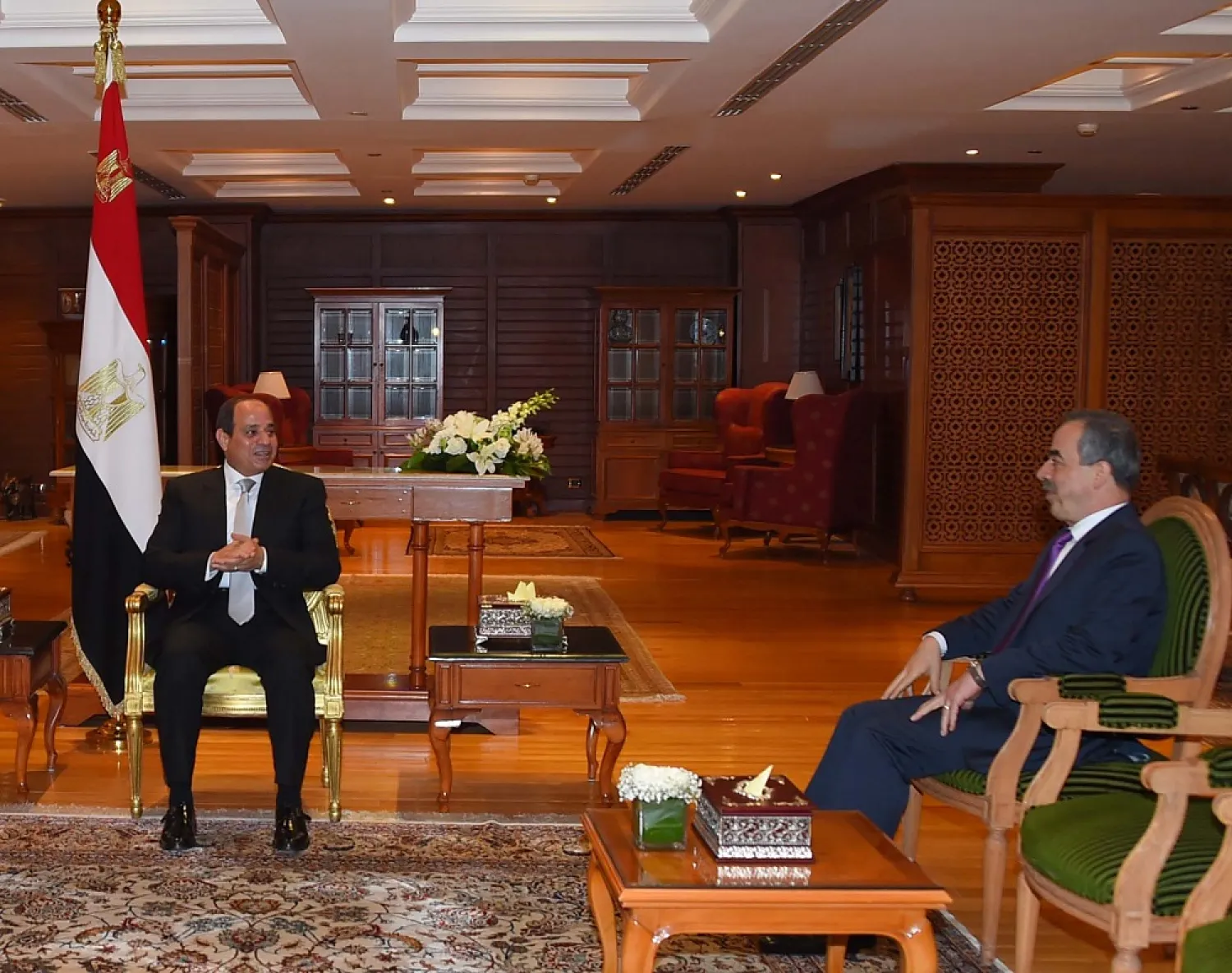Egyptian President Abdul Fattah al-Sisi said that Saudi Arabia is “making giant strides on more than one level”.
“These steps are cautious and bold”, he stressed. “I honestly say that our brothers in Saudi Arabia manage things wisely and firmly, and that's why I tell them we're always together.”
Sisi praised the approach adopted by the Saudi leadership at the political, economic and social levels and welcomed the mending of ties with Iraq.
In an interview with Asharq Al-Awsat on the sidelines of the World Youth Forum in Sharm al-Sheikh, the Egyptian president underlined his commitment to strategic relations with the Kingdom, stressing that Egypt’s stability “depends on the stability in Saudi Arabia and vice-versa.”
“Saudi Arabia's moderate approach, its focus on the comprehensive confrontation of extremism and its sources, its rejection of fanaticism… and its emphasis on the values of openness, coexistence, partnership and modernity are all reassuring factors,” he stated.
Sisi highly valued the recent rapprochement between the Kingdom and Iraq, saying: “Saudi Arabia's move towards Iraq is really wonderful, a message to others that, we, as Arabs, can be a tremendous force if we are united. Our brothers in Saudi Arabia, the UAE and Bahrain are fully aware of the dangers of interventions and destabilizing policies, and are conscious of the importance of fortifying Arab national security.”
Commenting on the World Youth Forum hosted by Egypt, he said: “When we talk about the future, we talk about the youth. We always seek to meet with the youth and listen to their thoughts, aspirations and concerns.”
“I believe that lack of communication with the youth was the main reasons behind revolutions in Egypt, Libya and Syria,” he added.
Asked about the parties behind terrorism in Egypt, Sisi warned that forces targeting his country were also threatening the whole region. He noted in this regard that those forces consisted of extremist organizations or regional states that seek to destabilize and change the equations.
“Our decision is conclusive in confronting these attacks and attempts, and our will is solid. We, as Arab countries, must unite in defense of our national security and stability against attempts to divide or plunge our countries in chaos and exhaust our economies,” he said.
On the crisis with Qatar, the Egyptian leader stressed that the demands of the Anti-Terrorism Quartet were clear in regards to the need for the Gulf country to stop its support for terrorism and to respect other states’ sovereignty.
“Of course, there is the Kuwaiti mediation that we appreciate, but in the end, all depends on Qatar's reaction. We do not want to dictate policies on others or interfere in their affairs, so we expect them to adopt similar behavior. We want peace and stability in the region, and double standards must be stopped,” he stated.
Commenting on the recent Russian proposal for a solution in Syria, Sisi underlined Egypt’s support for the unity of the Syrian state and its rejection of attempts to divide along on confessional and ethnic lines.
“We support the national state and its territorial integrity and we are against all attempts of division and fragmentation for ethnic or sectarian reasons. We support the sovereignty of these states protected by national armies not by armed militias. We support the national army and reject sectarian militias that lead to the disintegration of nations and their dumping into endless wars,” he firmly said.
Libya is another example of what can happen when the state collapses and militias seek to share the power, Sisi said.
“We want Libya to be stable, to maintain its unity… away from extremism and terrorism. I repeat: we support the national army, not the militias,” he stressed.
On the situation in Lebanon in wake of the resignation of Prime Minister Saad Hariri, Sisi noted that Lebanon’s stability was crucial to Egypt and the Arab world.
“By its very nature, Lebanon is a diverse country. The balance in Lebanon is a condition of stability, and this balance must be maintained without any foreign interference. I have already said that the weakness of the national state gives way to chaos and disorder. I believe that previous experiences will push the Lebanese to save their stability, which is of great concern to us. Lebanon’s stability is important to us and to the Arab world,” the Egyptian president said.
Furthermore, Sisi underlined the importance of the recent Palestinian reconciliation, saying that he hoped it would bolster the peace process.
“Palestinian reconciliation is a vital and important issue for the Palestinian people, and we have encouraged and embraced reconciliation… and we hope that the outcome will serve the peace process. The region needs peace, because its absence has cost the region much and depleted its energy,” he stated.













